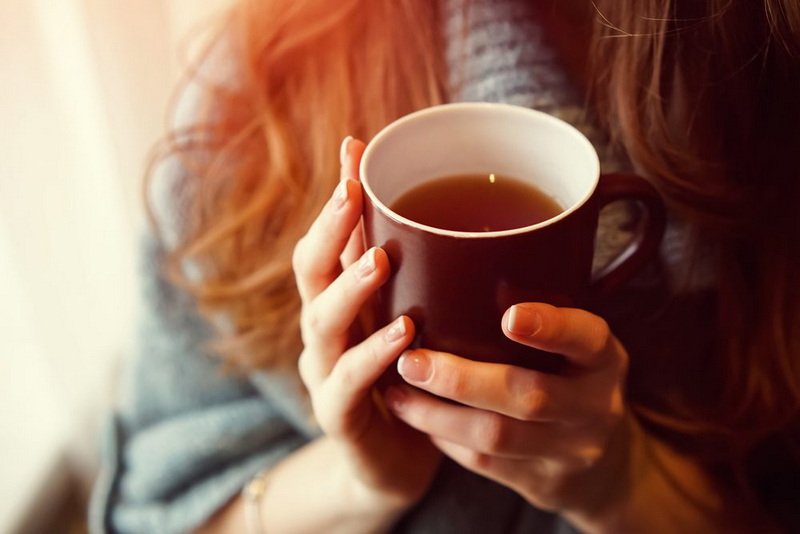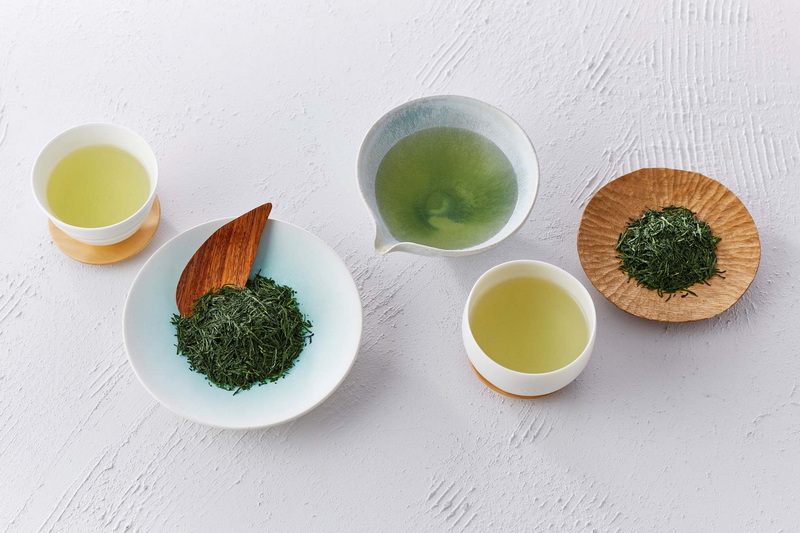Content Menu
● Introduction to L-Theanine and Valerian Root
>> L-Theanine
>> Valerian Root
● Efficacy Comparison
>> L-Theanine Efficacy
>> Valerian Root Efficacy
● Safety and Side Effects
>> L-Theanine Safety
>> Valerian Root Safety
● Combining L-Theanine and Valerian Root
>> Potential Benefits of Combination
>> Considerations
● Lifestyle Changes for Better Sleep
● Conclusion
● FAQs
>> 1. What is the recommended dosage of L-theanine for sleep?
>> 2. Can valerian root be used long-term for insomnia?
>> 3. Does L-theanine cause daytime drowsiness?
>> 4. What are the potential side effects of valerian root?
>> 5. Can L-theanine and valerian root be used together?
● Citations:
Insomnia is a widespread sleep disorder characterized by difficulty falling asleep, staying asleep, or both, despite adequate opportunities to sleep. It can significantly impact quality of life, leading to fatigue, mood disturbances, and decreased cognitive function. Natural remedies like green tea L-theanine and valerian root have gained attention for their potential to alleviate insomnia without the side effects associated with conventional sleep aids. This article will explore whether green tea L-theanine is 60% better than valerian root for treating insomnia, examining their mechanisms, efficacy, and safety.

Introduction to L-Theanine and Valerian Root
L-Theanine
L-theanine is an amino acid found primarily in the leaves of green tea plants. It is known for its relaxing effects, promoting a sense of calmness without inducing drowsiness. L-theanine works by increasing alpha brain waves, which are associated with relaxation, and modulating neurotransmitter activity, particularly enhancing GABA (gamma-aminobutyric acid) and serotonin levels while reducing glutamate levels.
Mechanism of Action:
1. Alpha Waves: L-theanine increases alpha brain waves, promoting relaxation and reducing stress.
2. GABA and Serotonin: It enhances the activity of GABA and serotonin, neurotransmitters that help regulate sleep and mood.
3. Glutamate Regulation: L-theanine may reduce glutamate levels, an excitatory neurotransmitter that can disrupt sleep.
Valerian Root
Valerian root is a natural herb that has been used for centuries to treat sleep disorders. It contains compounds like valerenic acid and valerenol, which interact with GABA receptors in the brain, enhancing GABA activity and promoting relaxation.
Mechanism of Action:
1. GABA Interaction: Valerian root increases GABA levels by inhibiting the enzyme responsible for GABA breakdown.
2. Serotonergic Activity: It may also influence serotonin pathways, contributing to its sleep-promoting effects.
Efficacy Comparison
L-Theanine Efficacy
Numerous studies have shown that L-theanine can improve sleep quality by reducing sleep latency, increasing sleep efficiency, and enhancing deep sleep stages without causing daytime drowsiness. A 2019 study found that 200 mg of L-theanine before bedtime significantly improved sleep quality in adults with insomnia. The consistent efficacy of L-theanine is attributed to its ability to promote relaxation and reduce stress without sedative effects.
Valerian Root Efficacy
Valerian root has also been found to improve sleep quality, reducing sleep latency and increasing deep sleep stages. However, its effectiveness can vary, and some studies report mixed results. A systematic review of 60 studies concluded that valerian root can improve sleep, but its effects may be modest and require consistent use. The variability in efficacy may be due to differences in preparation methods and individual responses to valerian root.
| Feature | L-Theanine | Valerian Root |
| Mechanism | Increases alpha waves, modulates GABA and serotonin | Interacts with GABA receptors, influences serotonin pathways |
| Efficacy | Consistently improves sleep quality, reduces sleep latency | Improves sleep quality, but effects can be modest and variable |
| Side Effects | Generally safe, no daytime drowsiness | Generally safe, but may cause stomach upset in some individuals |
| Usage | Typically taken as a supplement, 200 mg before bedtime | Available in capsules, teas, and tinctures; dosages vary |
Safety and Side Effects
L-Theanine Safety
L-theanine is considered safe with no reported adverse effects at typical dosages. It does not induce daytime drowsiness, making it suitable for use at any time. This safety profile is particularly beneficial for individuals who need to maintain alertness during the day while still addressing sleep issues at night.
Valerian Root Safety
Valerian root is generally safe but may cause stomach upset in some individuals. It is not recommended for long-term use in treating chronic insomnia due to limited evidence on its safety and efficacy over extended periods. Additionally, valerian root may interact with certain medications, such as sedatives and antidepressants, which should be considered when using it as a sleep aid.
Combining L-Theanine and Valerian Root
While there is limited research on combining L-theanine and valerian root, both supplements work on GABA pathways and could potentially enhance each other's effects. However, it is advisable to consult a healthcare professional before combining supplements to ensure safety and optimal efficacy.
Potential Benefits of Combination
1. Enhanced Relaxation: Combining L-theanine and valerian root may provide a synergistic effect, enhancing relaxation and sleep quality.
2. Reduced Side Effects: Using both supplements at lower doses could minimize potential side effects while maintaining therapeutic benefits.
Considerations
1. Dosage: Start with low doses of each supplement to assess tolerance and adjust as needed.
2. Consultation: Always consult with a healthcare provider before initiating any new supplement regimen.
Lifestyle Changes for Better Sleep
In addition to using natural supplements, incorporating lifestyle changes can significantly improve sleep quality. These include:
1. Establishing a Sleep Schedule: Maintain a consistent sleep schedule to regulate your body's internal clock.
2. Creating a Sleep-Conducive Environment: Ensure your bedroom is dark, quiet, and at a comfortable temperature.
3. Avoiding Stimulants Before Bedtime: Limit caffeine and electronic screen use before bedtime.
4. Engaging in Relaxation Techniques: Practice relaxation techniques such as meditation or deep breathing exercises.
Conclusion
While both L-theanine and valerian root have shown promise in improving sleep quality, L-theanine appears to have more consistent efficacy and safety data. Its ability to promote relaxation without inducing drowsiness makes it a favorable option for those seeking natural sleep aids. However, whether L-theanine is 60% better than valerian root for insomnia is subjective and may depend on individual responses to these supplements.

FAQs
1. What is the recommended dosage of L-theanine for sleep?
The recommended dosage of L-theanine for sleep is typically around 200 mg taken about 30 minutes before bedtime.
2. Can valerian root be used long-term for insomnia?
Valerian root is not recommended for long-term use in treating chronic insomnia due to limited evidence on its safety and efficacy over extended periods.
3. Does L-theanine cause daytime drowsiness?
No, L-theanine does not cause daytime drowsiness, making it suitable for use at any time of the day.
4. What are the potential side effects of valerian root?
Valerian root is generally safe but may cause stomach upset in some individuals.
5. Can L-theanine and valerian root be used together?
While there is limited research on combining L-theanine and valerian root, they both work on GABA pathways and could potentially enhance each other's effects. However, it is advisable to consult a healthcare professional before combining supplements.
Citations:
[1] https://the-nutrition-network.com/six-herbs-to-aid-sleep/
[2] https://yamamotoyama.co.jp/en/blogs/column/reading258
[3] https://www.sleepfoundation.org/sleep-aids/valerian-root
[4] https://pubmed.ncbi.nlm.nih.gov/25759004/
[5] https://www.rupahealth.com/post/the-top-5-supplements-to-help-you-sleep
[6] https://www.medicalnewstoday.com/articles/324120
[7] https://www.healthline.com/nutrition/valerian-root
[8] https://pmc.ncbi.nlm.nih.gov/articles/PMC6366437/
[9] https://pubmed.ncbi.nlm.nih.gov/33086877/
[10] https://pmc.ncbi.nlm.nih.gov/articles/PMC9017334/





























